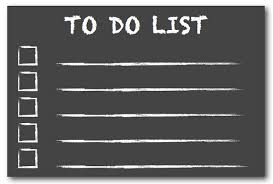
By Anne Grady
People who operate at high levels of intensity for long periods can actually get addicted to the “high” of adrenaline, noradrenaline, and cortisol, and so adrenaline and stress can be making us sick.
According to the American Academy of Family Physicians, two-thirds of all office visits to family physicians are due to stress-related symptoms. Stress is linked to the six leading causes of death: heart disease, cancer, lung ailments, accidents, cirrhosis of the liver, and suicide.
In the midst of information overload, endless tasks, and unhealthy addiction to stress, here are four ways we can stop multitasking and the damage it can be doing to our health:
- Find Your Priorities. Look at the areas of your life that matter to you. Possible areas include career, finance, family, health, relationships, social life, attitude, and personal growth. Realize that some areas should take priority over others. Focus on one priority at a time.
- Set Priorities. Rank how you feel you are doing in each area that’s important to you, from 1 to 10 (poor to perfect). Look at where you can make slight changes. Your goal isn’t necessarily going from a 2 to 10. The goal is making slight edge changes, like going from a 2 to a 4.
- Devote Yourself to What Matters. Identify your top three to five priorities and spend 80 percent of your time on them without apologizing for it. Schedule time for your priorities. If necessary, save money for them. Make sure you have emotional and physical energy for them.
- Cut Out the Interruptions. To cut down stress and increase productivity, take steps to cut out the interruptions caused by multitasking, constantly checking e-mail ad texts, and staying glued to social media. Each interruption can waste between 10 to 15 minutes of your work day, including time to re-engage in the task you were doing before being interrupted.
If we save 30 minutes a day being more productive—the time it takes for two or three interruptions—that is the equivalent of having an extra 22 days a year. Turn off your new mail alert, turn off your technology, and do one thing at a time.
Additional Articles on the Impacts of Multitasking
In 2009, Forbes published research from Stanford University that found multitasking reduces a person’s efficiency and performance because an individual’s brain can only focus on one thing at a time. In September 2014, it was reported that researchers at the University of Sussex in the United Kingdom found that multitasking may cause lasting harm to the brain.
New, Reduced Membership Dues
A new, reduced dues rate is available for CAOs/ACAOs, along with additional discounts for those in smaller communities, has been implemented. Learn more and be sure to join or renew today!
